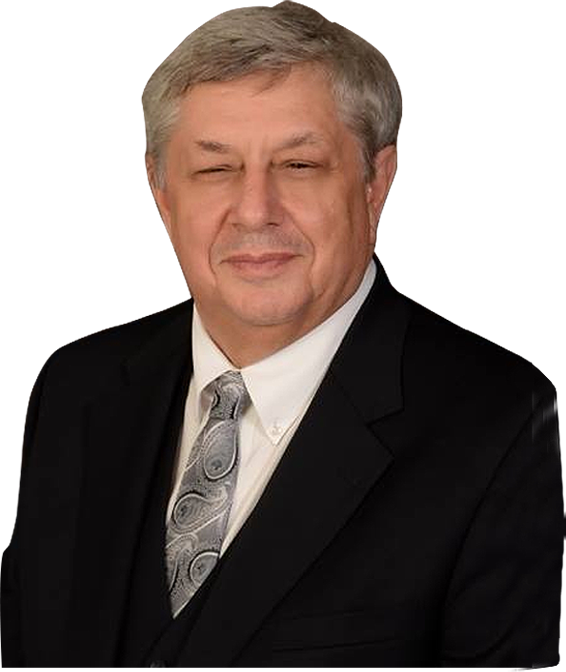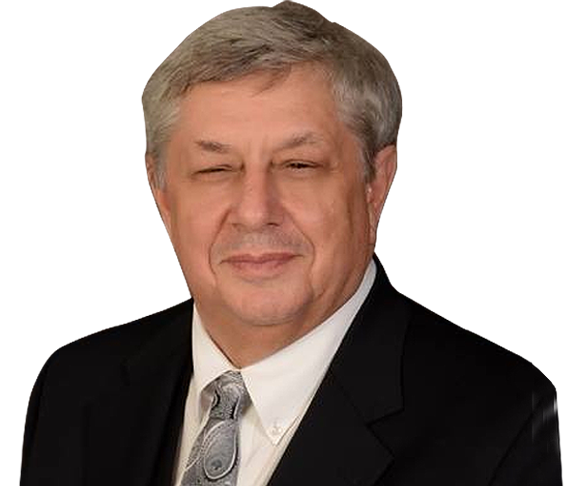Wills & Probate
2101.01 Probate division – location – equipment – employees.
A probate division of the court of common pleas shall be held at the county seat in each county in an office furnished by the board of county commissioners, in which the books, records, and papers pertaining to the probate division shall be deposited and safely kept by the probate judge…
2101.02 Judge of probate division – election – term.
Every six years, in each county having a separate judge of the probate division of the court of common pleas, one probate judge shall be elected who is qualified as required by section 2301.01 of the Revised Code. The probate judge shall hold office for six years, commencing on the ninth day of February next following the judge’s election…
2101.021 One additional probate judge for Cuyahoga county.
There shall be one additional probate judge for the probate court of Cuyahoga County.
The additional judge shall be elected at the general election to be held in 1954 and every six years thereafter, for a term of six years commencing on the first day of January next following the additional judge’s election…
2101.022 Jurisdiction of Marion county probate judge – clerk of probate division.
Except as provided in division (B) of this section and notwithstanding any provision of this chapter or of any other provision of the Revised Code, on and after February 9, 2003, the judge of the probate division of the court of common pleas of Marion county who is elected in 2002 pursuant to section 2101.02 of the Revised Code to fill the office of the judge of the probate division of the court of common pleas…
2101.023 Adding judge to Erie County Court of Common Pleas.
The judge of the court of common pleas of Erie county who is elected in 2008, and successors, is the successor to the judge of the probate division of that court whose term expires on February 8, 2009, shall be designated as a judge of the court of common pleas, general division, shall have all the powers relating to the general division of the court of common pleas…
2101.024 Create Domestic Relations-Juvenile-Probate Division of the Logan County Court of Common Pleas.
Effective January 2, 2005, the probate judge of the court of common pleas of Logan county shall have all the powers relating to the domestic relations-juvenile-probate division of the court of common pleas…
2101.025 Jurisdiction of Champaign county probate judge.
Effective February 9, 2009, the probate judge of the court of common pleas of Champaign county shall have all the powers relating to the domestic relations-juvenile-probate division of the court of common pleas of Champaign county, as established pursuant to division (DD)(1) of section 2301.03 of the Revised Code, and shall exercise concurrent jurisdiction with the judges…
2101.026 Franklin county probate court mental health fund.
The probate court of Franklin county may accept funds or other program assistance from individuals, corporations, agencies, or organizations, including, but not limited to, the board of alcohol, drug addiction, and mental health services of Franklin county or the Franklin county board of developmental disabilities…
2101.03 Bond of probate judge.
Before entering upon the discharge of official duties, the probate judge shall give a bond to the state in a sum not less than five thousand dollars. The bond shall have sufficient surety, shall be approved by the board of county commissioners or by the county auditor and county recorder in the absence from the county of two of the members of the board, and shall be conditioned…
2101.04 Rules of practice submitted to supreme court.
The judge or judges of the probate court shall make rules regulating the practice and conducting the business of the court, and the judge or judges shall submit those rules to the supreme court. In order to maintain regularity and uniformity…
2101.05 Oaths and depositions.
A probate judge may administer oaths, take acknowledgment of instruments in writing required to be acknowledged, and take depositions.
Depositions taken according to sections 2319.05 to 2319.31, inclusive, of the Revised Code, to be used on the trial of civil cases, may be taken and used on the trial of any question before the probate court…
2101.06 Master commissioners – appointment and bond – duties.
The probate judge, upon the motion of a party or the judge’s own motion, may appoint a special master commissioner in any matter pending before the judge. The commissioner shall be an attorney at law and shall be sworn faithfully to discharge the commissioner’s duties…
2101.07 Master commissioners – powers – fees.
A special master commissioner of the probate court may administer all oaths required in the discharge of the commissioner’s duties, may summon and enforce the attendance of witnesses, may compel the production of books and papers, and may grant adjournments the same as the court, and, when the court directs, the commissioner shall require the witnesses severally to subscribe the witnesses’ testimony…
2101.08 Appointment of court reporters.
The probate judge may appoint court reporters and fix their compensation in the manner provided for the court of common pleas in sections 2301.18 to 2301.26 of the Revised Code…
2101.09 Liability of sheriffs, coroners, and constables for failure to serve and return process.
When required by the probate judge, sheriffs, coroners, and constables shall attend the judge’s court and shall serve and return process directed and delivered to them by the judge. No officer of that type shall neglect or refuse to serve and return any process as required by this section…
2101.10 Liability of sheriffs, coroners, and constables for failure to pay over moneys.
No sheriff, coroner, or constable shall refuse to pay moneys collected by that officer to the probate judge or other person, when so directed by the judge. For refusal to pay over moneys collected, the officer shall be summoned as provided in section 2101.09 of the Revised Code and amerced…
2101.11 Court records – investigators – bond.
The probate judge shall have the care and custody of the files, papers, books, and records belonging to the probate court. The probate judge is authorized to perform the duties of clerk of the judge’s court. The probate judge may appoint deputy clerks, court reporters, a bailiff, and any other necessary employees…
2101.12 Records to be kept – indexes.
The following records shall be kept by the probate court:
An administration docket, showing the grant of letters of administration or letters testamentary, the name of the decedent, the amount of bond and names of sureties in the bond, and the date of filing and a brief note of each order or proceeding…
2101.121 Record-keeping methods.
A probate court may keep and maintain records that are required by section 2101.12 or another section of the Revised Code by record-keeping methods other than bound volumes of paper pages. These record-keeping methods include, but are not limited to, photography, microphotography, photostatic process, electrostatic process, facsimile reproduction, perforated tape, magnetic tape or other electromagnetic methods, electronic data processing, machine-readable media, and graphic or video display…
2101.13 Probate judge shall make entries omitted by his predecessor.
When a probate judge, whether elected or appointed, enters upon the discharge of the judge’s official duties, the judge shall make, in the books and other record-keeping materials of the judge’s office, the proper records, entries, and indexes omitted by the judge’s predecessors in office…
2101.14 Care and preservation of papers – time stamp.
All pleadings, accounts, vouchers, and other papers in each estate, trust, assignment, guardianship, or other proceeding, ex parte or adversary, which are filed in the probate court shall be kept together, and upon the final termination or settlement of the case, cause, or proceeding shall be preserved for future reference and examination…
2101.141 Record disposal.
The vouchers, proof, or other evidence filed in support of the expenditures or distribution stated in an account, which has been filed in the probate court, may be ordered destroyed or otherwise disposed of five years after the account with which it was filed has been approved or settled and recorded and after there has been a compliance with section 149.38 of the Revised Code…
2101.15 Probate judge to file itemized account of fees with county auditor.
In each case, examination, or proceeding, the probate judge shall file an itemized account of fees received or charged by the judge. On the first day of January, in each year, the judge shall file with the county auditor an account, certified by the judge, of all fees received by the judge during the preceding year. No judge shall fail to perform the duties imposed in this section…
2101.16 Fees.
Except as provided in section 2101.164 of the Revised Code, the fees enumerated in this division shall be charged and collected, if possible, by the probate judge and shall be in full for all services rendered in the respective proceedings…
2101.161 Deposit of prepaid and unearned costs.
The probate court may order that prepaid and unearned costs be deposited with a bank, savings bank, savings and loan association, credit union, or trust company incorporated under the laws of this state or of the United States…
2101.162 Computerizing court of paying cost of computerized legal research.
The probate judge may determine that, for the efficient operation of the probate court, additional funds are required to computerize the court, make available computerized legal research services, or to do both. Upon making a determination that additional funds are required for either or both of those purposes…
2101.163 Dispute resolution procedures in probate court.
A probate judge may establish by rule procedures for the resolution of disputes between parties to any civil action or proceeding that is within the jurisdiction of the probate court. Any procedures so adopted shall include, but are not limited to, mediation…
2101.164 Fees waived for combat zone military casualties.
As used in this section, “combat zone” means an area that the president of the United States by executive order designates for purposes of 26 U.S.C. 112 as an area in which armed forces of the United States or the national guard are engaging or have engaged in combat…
2101.165 Cancellation of uncollectible debts.
If at any time the court finds that an amount owing to the court is due and uncollectible, in whole or in part, the court may direct the clerk of the court to cancel all or part of the claim. The clerk shall then effect the cancellation…
2101.17 Fees from county treasury.
The fees enumerated in this section shall be paid to the probate court from the county treasury upon the warrant of the county auditor which shall issue upon the certificate of the probate judge and shall be in full for all services rendered…
2101.18 Fees for other services.
For services for which compensation is not provided but subject to section 2101.27 of the Revised Code insofar as the probate judge solemnizes marriages, the probate judge shall be allowed the same fees as are allowed the clerk of the court of common pleas for similar services…
2101.19 Limitation of charges by probate judge – probate court conduct of business fund.
No probate judge or probate judge’s deputy clerk shall sell or offer for sale for more than one dollar any merchandise to be used in connection with any license, order, or document issued by the probate court, or make any charge…
2101.20 Reduction of fees.
When the aggregate amount of fees and allowances collected by the probate judge in any calendar year exceeds by more than ten per cent the amount necessary to pay the salaries of the judge and the employees of the probate court, including court constables, for the same calendar year, the judge may, by an order entered on the judge’s journal…
2101.21 Fiduciary – payment of costs in advance.
Before appointing any person as a fiduciary, the probate court may require payment of the costs incident to such appointment…
2101.22 Process.
The probate judge shall issue any process, notices, commissions, rules, and orders that are necessary to carry into effect the powers granted to the judge…
2101.23 Contempt.
The probate judge may keep order in the judge’s court and has authority throughout the state to compel performance of any duty incumbent upon any fiduciary appointed by or accounting to the judge. The probate judge may punish any contempt of the judge’s authority as that contempt might be punished in the court of common pleas…
2101.24 Jurisdiction of probate court.
Except as otherwise provided by law, the probate court has exclusive jurisdiction…
2101.25 Optional jurisdiction of probate judge.
When any action for the appropriation of property or any appeal in a road case, in a sewer district case, or in any county water supply system case is filed in the probate court, the judge may certify such cause to the court of common pleas of the county, together with all the papers filed therein…
2101.26 Referring information as to abuse, exploitation or theft to law enforcement agency.
If the probate judge receives information of the alleged abuse or financial exploitation of a person of advanced age or of an incompetent or minor under guardianship, or receives information of an alleged theft from the estate of a decedent, the judge may refer the information to the appropriate law enforcement agency of the political subdivision…
2101.27 Probate judge has authority to solemnize marriage within county.
A probate judge has jurisdiction and authority to solemnize marriages within the county and may charge a fee for providing the service in accordance with division (B) of this section. The fee charged is subject to disposition in accordance with division (C) of this section…
2101.28, 2101.29 [Repealed].
2101.30 Jury – drawing.
Whenever a jury is required in the probate court, the probate judge shall notify the commissioners of jurors, who shall cause to be drawn from the annual jury list the names of sixteen jurors. Additional names may be drawn if required…
2101.31 Determination of questions of fact.
All questions of fact shall be determined by the probate judge, unless the judge orders those questions of fact to be tried before a jury or refers those questions of fact to a special master commissioner as provided in sections 2101.06 and 2101.07 of the Revised Code…
2101.32 Rules and procedure of court of common pleas to govern – power to award and tax costs.
The probate judge shall have the powers and perform the duties provided for, and shall be governed by the sections of the Revised Code and rules that apply to, the courts of common pleas and the judges of those courts. The Rules of Civil Procedure shall govern actions and proceedings in the probate court as provided in Civil Rule 73…
2101.33 Vacation and modification of judgments.
The probate court has the same power as the court of common pleas to vacate or modify its orders or judgments…
2101.34 Judgments by confession.
If the judges of the court of common pleas are absent from the county or are under a disability, the probate judge of the county may enter judgments by confession in cases pending in the court of common pleas of the judge’s county…
2101.35 Execution.
Orders for the payment of money may be enforced as judgments in the court of common pleas. Such execution shall be directed to the sheriff, or, in the sheriff’s absence or disability, to the coroner…






